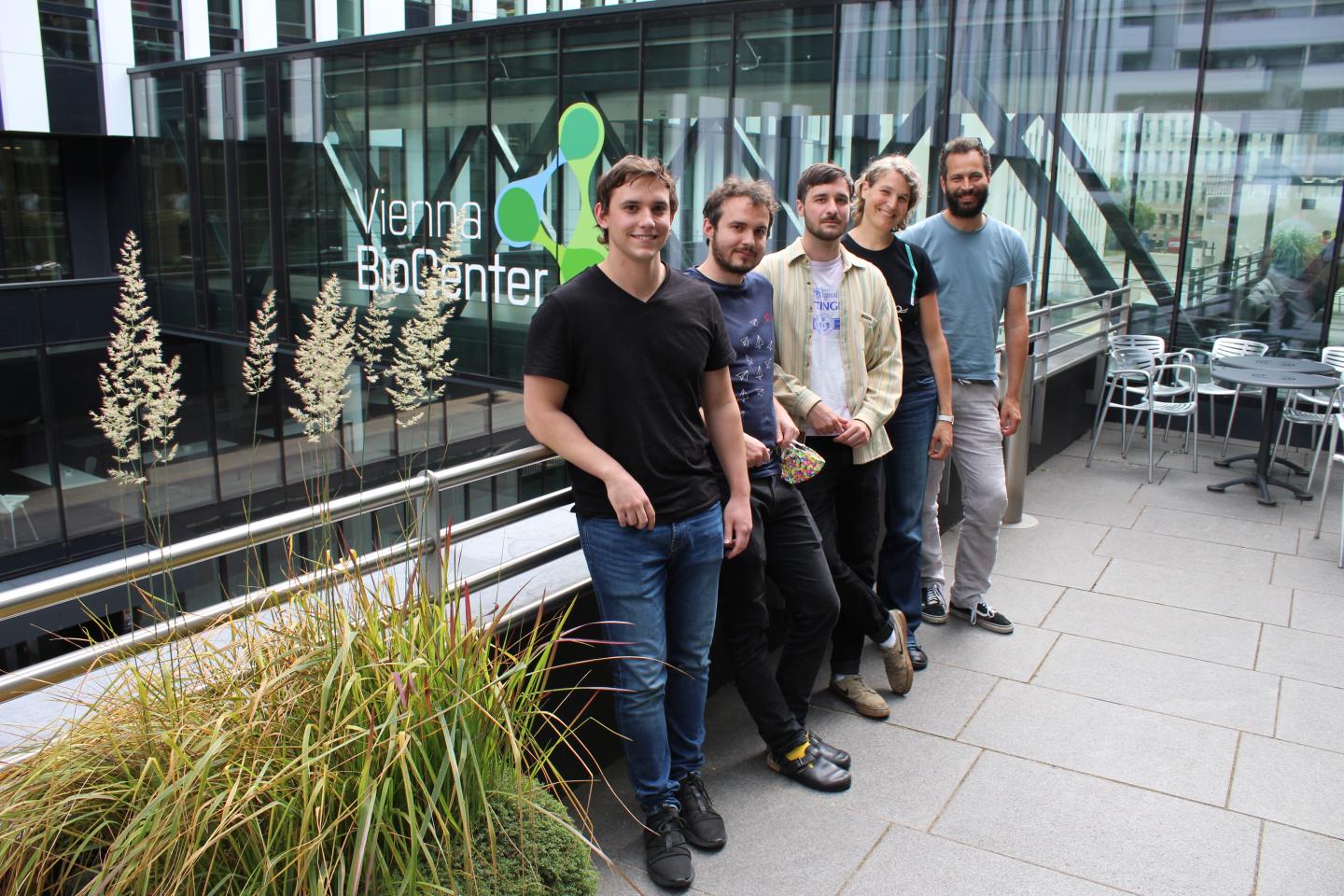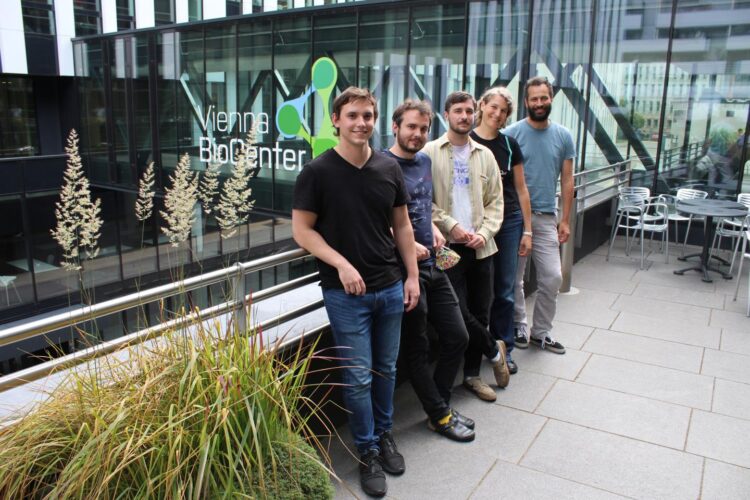The test is intended for population screening with simple means

Credit: ©IMP
Global endeavours to fight the Covid-19 pandemic heavily rely on accurate, fast and frequent tests for the coronavirus SARS-CoV-2 – “test, test, test”, as the World Health Organization (WHO) has bluntly put it. Around the globe, the prevailing approach to diagnose acute infections is based on real-time qPCR, a method that amplifies and detects viral nucleic acid molecules in samples obtained from nose and throat swabs. However, qPCR requires sophisticated and expensive equipment and specialist staff to operate it – crucial drawbacks for example in remote or low-resource settings.
Scientists from the Vienna BioCenter and collaborators have now pushed an established nucleic acid detection assay to a new level. The so-called “Loop-mediated isothermal amplification (RT-LAMP)”, first developed twenty years ago, is cheap, simple and quick – features that make it in principle an ideal alternative for routine SARS-CoV-2 detection. However, limited sensitivity and robustness have so far held back RT-LAMP-based assays from entering the center stage for SARS-CoV-2 diagnostics. The improvements introduced by the Viennese team overcome these challenges and make RT-LAMP a potential game-changer for population-scale screening approaches, especially in economically disadvantaged countries.
Starting with a 5-minute lysis step that “breaks open” cells and virus particles, RT-LAMP employs a simple reaction in which the viral RNA is converted into DNA and amplified billionfold within less than 30 minutes. The generation of such tremendous amounts of DNA can be directly observed with the naked eye by a visual colour change from purple to sky-blue in the reaction tube. Combining this method with a simple RNA enrichment step is at the heart of the newly developed method as it boosts sensitivity by orders of magnitude. Neither specialist laboratory equipment nor expert skills are needed – the most challenging step is to keep the sample at a stable temperature of approximately 63°C during the 30 minutes of the reaction, a task that can – if necessary – be fulfilled by re-purposed kitchen devices.
“Our method builds on existing protocols developed for pathogen detection”, says Julius Brennecke of the Institute of Molecular Biotechnology (IMBA) of the Austrian Academy of Sciences. “For SARS-CoV-2-detection, we managed to improve it to a level that matches qPCR-like sensitivity on crude patient samples. We are extremely excited and can barely wait to see it applied. We expect that these improvements, including the ability to perform pooled screening, will make a real difference not only in developing countries, but in low-resource environments anywhere in the World. Sensitive, affordable and rapid SARS-CoV-2 screening and diagnostics approaches are much needed now.”
“The way this whole project unfolded is rather exceptional,” says Andrea Pauli of the Research Institute of Molecular Pathology (IMP). “It started off as a crazy idea, triggered by our believe that as scientists we must act to help in the current pandemic. Through a remarkable coincidence, Max Kellner, an Austrian PhD student at the institute LMB in Cambridge who had prior experience with isothermal amplification methods, got stranded in his hometown Vienna during the lockdown. When we found out, we teamed him up with Vienna BioCenter PhD students Julian Ross and Jakob Schnabl. And so, two groups, normally working on Drosophila oogenesis and zebrafish embryology, came together and set foot in a new field. An exceptional level of team spirit and enthusiasm allowed us to push this project much further than we had ever envisioned and made it a once in a life-time experience for everyone involved.”
IMP and IMBA are members of the Vienna BioCenter, and the breakthrough is testimony to the fruitful and collaborative spirit this campus is known for. The lockdown period boosted these synergistic activities in an unprecedented manner across labs and institutes. While normal research activities have returned to the labs by now, scientists across campus continue to contribute their time and expertise to combat the outbreak of the Covid-19 pandemic. As part of the VCDI (Vienna Covid-19 Diagnostics Initiative) they work jointly on questions that open the door for applications which could benefit millions of people around the world.
The study underlying this news item will be uploaded to the preprint service bioRxiv, where it is expected to become available soon.
###
About IMP
The Research Institute of Molecular Pathology (IMP) in Vienna pursues world-class research in basic molecular biology. It is located at the Vienna BioCenter and largely sponsored by Boehringer Ingelheim. With over 200 scientists from 40 countries, the IMP is committed to scientific discovery of fundamental molecular and cellular mechanisms underlying complex biological phenomena. http://www.
About IMBA
IMBA – Institute of Molecular Biotechnology – is one of the leading biomedical research institutes in Europe focusing on cutting-edge stem cell technologies, functional genomics, and RNA biology. IMBA is located at the Vienna BioCenter, the vibrant cluster of universities, research institutes and biotech companies in Austria. IMBA is a subsidiary of the Austrian Academy of Sciences, the leading national sponsor of non-university academic research. The stem cell and organoid research at IMBA is being funded by the Austrian Federal Ministry of Science and the City of Vienna. http://www.
About the Vienna BioCenter
The Vienna BioCenter is a leading life sciences hub in Europe, offering an extraordinary combination of research, business and education in a single location. Over 1,800 employees, 91 research groups, 27 biotech companies, 1,300 students and scientists from 80 countries create a highly dynamic and stimulating environment. http://www.
Media Contact
Dr. Heidemarie Hurtl
[email protected]
Original Source
https:/





